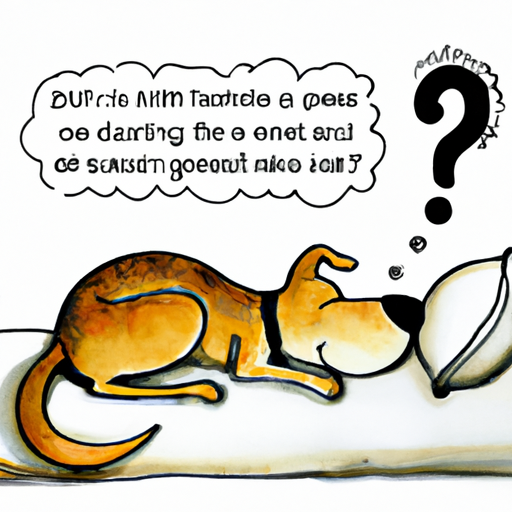Introduction
You’ve probably noticed your beloved canine companion shaking during sleep and wondered what could be causing this phenomenon. If you’re like most caregivers, you’d want to ensure that your furry friend is comfortable and in good health. So, why do dogs shake when they sleep? Is it a reason for concern? Let’s dive in and explore.
The Science behind Dogs’ Sleep
Before you can understand why your dog might shake during sleep, it’s essential to grasp a bit about the science of dogs’ sleep. Dogs, like humans, experience different stages of sleep, including Rapid Eye Movement (REM) and Non-Rapid Eye Movement (NREM).
During the REM stage, dogs may shake or twitch due to active dreaming. Just as you may twitch or move during an intense dream, the same applies to your dog.
Medical Reasons for Shaking
While dreaming can explain some instances of shaking, it’s not always the case. Sometimes, shaking can be a symptom of a medical condition.
- Distemper: This is a severe viral disease that can cause shaking, among other symptoms.
- Generalized Tremor Syndrome (GTS): Also known as white shaker dog syndrome, this neurological disorder can lead to widespread shaking.
- Hypoglycemia: Low blood sugar can lead to shaking in dogs, particularly in small breeds.
If your dog’s shaking is accompanied by other symptoms such as fever, lethargy, or loss of appetite, it’s advisable to seek veterinary attention.
Normal vs. Abnormal Shaking
As a caring pet parent, how can you tell if your dog’s shaking during sleep is normal or a sign of a health problem?
- Normal Shaking: This is often brief and happens intermittently. It’s usually associated with dreaming and may coincide with whimpering or paw movements.
- Abnormal Shaking: This is typically prolonged and may occur even when the dog is awake. It might be accompanied by other symptoms like loss of balance or changes in behavior.
Keeping Your Dog Comfortable
If your dog’s sleep shaking is normal and caused by dreams, there’s little you need to worry about. However, you can take steps to ensure your dog’s comfort during sleep:
- Provide a comfortable sleeping area
- Ensure the room temperature is not too cold
- Regularly exercise your dog to promote good sleep
FAQ
Q: Is it okay to wake my dog if it’s shaking in sleep?
A: It’s generally best to let sleeping dogs lie. However, if the shaking is intense or prolonged, it’s advisable to gently wake them.
Q: Can diet influence my dog’s shaking?
A: Yes, a diet lacking in essential nutrients can lead to health problems that cause shaking.
Q: How often should my dog enter the REM stage of sleep?
A: Dogs typically enter REM sleep every 20 minutes or so. During this stage, it’s normal for them to twitch or shake.
Q: When should I seek veterinary advice?
A: If your dog’s shaking is prolonged, severe, or accompanied by other symptoms such as loss of appetite or lethargy, you should consult a vet.
With this knowledge at your fingertips, you can better understand your dog’s sleep behavior and ensure their health and comfort. Happy caregiving!



